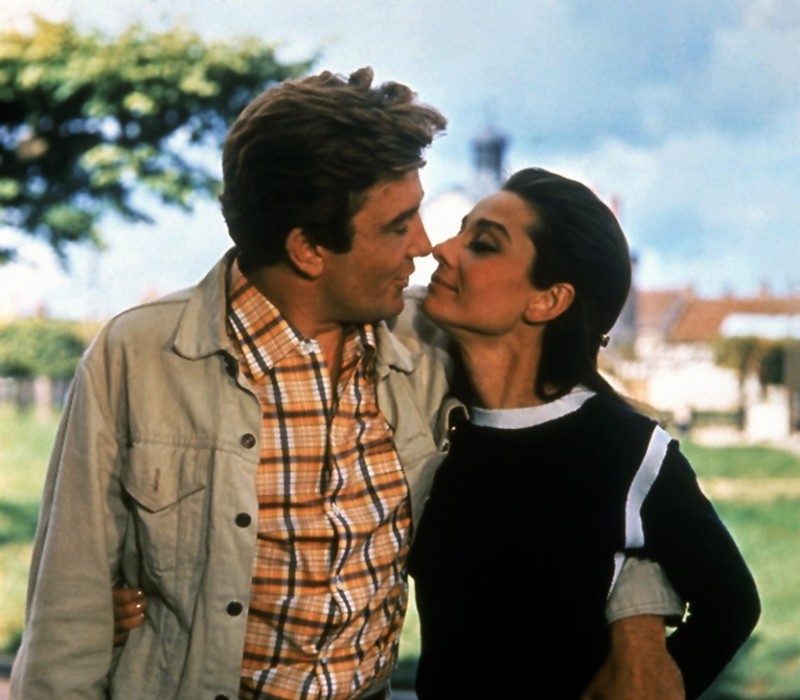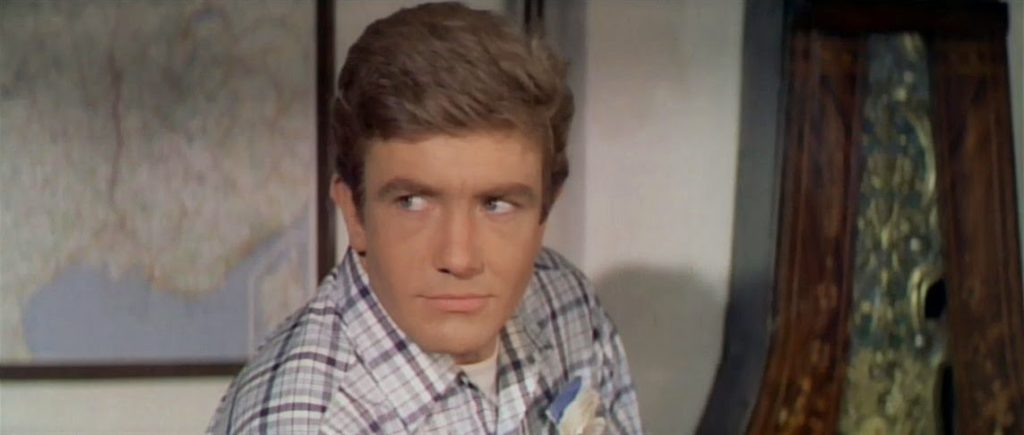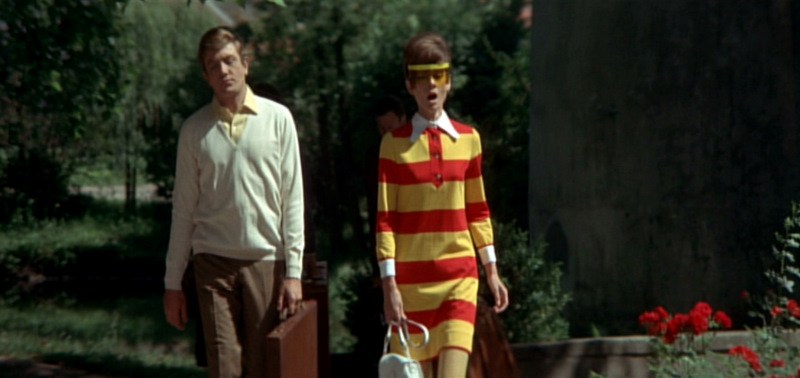 Two for the Road begins with a love affair gone sour then cycles back to when it began, skipping back and forth in time and through different phases: flirtation, rancour, complacency and newly-wedded bliss. The film is a non-linear slide into heartache.
Two for the Road begins with a love affair gone sour then cycles back to when it began, skipping back and forth in time and through different phases: flirtation, rancour, complacency and newly-wedded bliss. The film is a non-linear slide into heartache.
Driving through a small town, Mark (Albert Finney) and Joanna Wallace (Audrey Hepburn) pause just in time to see a bride and groom leave church. “They don’t look very happy,” she says. “Why should they? They just got married,” he replies. They keep driving but it’s clear they would be happier apart. On a flight to France they sit in silence, the empty seat between them a no man’s land marking territory. She asks him if he has his passport; he doesn’t. It’s only after Mark has panicked, ordering the stewardess to turn the plane around that Joanna calmly holds out his passport, which she’s had all along. The scare was his punishment for ignoring her. They argue but don’t wound each other; they lack the passion to try. Out of the window, the camera glimpses a ship heading in the opposite direction. On the deck is Mark, now 10 years younger, about to meet Joanna for the first time.
A lot happens in that decade. Director Stanley Donen fills in the gap in bits and pieces, showing love wither even as it blooms. None of which would matter if we didn’t come to care for Mark and Joanna so dearly. We meet them again and again, always on the road, always on holiday in France, and get to know their in-jokes and idiosyncrasies. Hepburn and Finney breathe such life into the pair that we root for a relationship we already know won’t last.
From the beginning, Mark is the more impetuous of the two. Hitchhiking through France, he rescues Joanna and her friends after their VW bus breaks down and proves a louche knight in shining armour, flirting shamelessly with the pretty Jacqueline (a young Jacqueline Bisset). When the girls are laid low by chickenpox Joanna, not Jacqueline, is the sole survivor and Mark grudgingly accepts her company. They set off together but he forgets his passport. As usual, Joanna has it. “If there’s one thing I really despise, it’s an indispensable woman,” he tells her, smiling sheepishly. Mark is pompous and immature, but a man with a smile that appealing is worth loving. Much later, travelling alone, Mark cheats on Joanna and has a one-night stand—he seduces the woman with a dazzling grin, a variation on the one Joanna fell in love with. Finney gives Mark warmth and considerable charm and then lets it all warp as Mark squanders the love of a woman he once adored, and grows so careless he briefly forgets their daughter’s name.
Time changes Joanna too. When she and Mark first meet she takes his measure instantly and refuses to be put off. Endlessly patient, she endures a diatribe on American female morality then cuts through his bluster with a single question: “Who was she?” Hepburn delivers the line without mockery or judgement, revealing more about her character than most actresses could with a monologue. Joanna pushes Mark to succeed and the more prosperous the Wallaces are, the more elaborate Joanna’s wardrobe becomes, culminating in some eye-poppingly sixties fashion. (Hepburn’s clothes, designed by half a dozen couturiers including Paco Rabanne and Mary Quant, receive their own title card in the opening credits.) But the older Joanna resents their lifestyle. Mark’s preoccupation with work is a symptom of his habitual selfishness and he uses her as an excuse. As the years wear on the weariness in Hepburn’s eyes grows and the light within them fades.
Frederic Raphael’s script is built around juxtapositions and parallels, pitting the present against the past. Mark and Joanna’s greatest joys are tinged with sadness because we know where they are headed. Time is fluid. Young Mark and Joanna spot a middle-aged French couple quarrelling but aren’t close enough to hear them. She teasingly asks him, “What do couples argue about?” and Donen cuts closer to the couple, as if in response. Yet the voices we hear aren’t French: they are Joanna and Mark’s older selves, bickering during a later trip.
The same fluidity also provides one of the film’s biggest laughs. The Wallaces take an ill-advised trip with the Manchesters, a family of stereotypically obnoxious Americans abroad that includes Mark’s old flame, Cathy (the very British Eleanor Bron, whose accent sadly gets lost somewhere in the Atlantic). They pass a road sign for Chantilly and persuade Cathy’s efficiency-obsessed husband Howard (William Daniels) to stop for a visit. Donen suddenly runs the film in fast forward as the two families zoom through the city’s tourist attractions before dashing back to their car. As they drive off, now back to normal speed, Howard says wistfully “Really great to dawdle through an old place like that”. And he means it.
Many of the laughs in Two for the Road are bittersweet, but so is life. The film is a truthful, deeply romantic examination of a relationship, with poignant performances by Hepburn and Finney and a touching score by Henry Mancini. Mark and Joanna might never solve the riddle of married life. The point is that they try.


Leave a Reply